 So, where are the likely places to hear someone playing a Telecaster? On a British nineties indie record maybe; the black Tele was the indie guitar-slinger’s weapon of choice. On a country record maybe; James Burton has a couple of signature models. Springsteen? Albert ‘master of the Telecaster’ Collins? How about on a Europop or techno/folk album (whichever description you prefer) by a French artist writing in English and inspired by Tim Burton and David Lynch? No, wouldn’t have been my first choice either, but that’s exactly where we find this particular Telecaster doing its thing.
So, where are the likely places to hear someone playing a Telecaster? On a British nineties indie record maybe; the black Tele was the indie guitar-slinger’s weapon of choice. On a country record maybe; James Burton has a couple of signature models. Springsteen? Albert ‘master of the Telecaster’ Collins? How about on a Europop or techno/folk album (whichever description you prefer) by a French artist writing in English and inspired by Tim Burton and David Lynch? No, wouldn’t have been my first choice either, but that’s exactly where we find this particular Telecaster doing its thing.
But this is about more than Telecasters. Talisco is based in Paris, he’s already well-known across mainland Europe (“Run” was released in France in 2014) and this is the push to crack the UK market. He’s only started singing relatively recently (if my translation of his French Wikipedia page is accurate) and that’s a huge surprise, because his voice is powerful and distinctive with a strong resemblance to Freddie Mercury on the first two Queen albums.
A couple of songs on the album, the opener “Your Wish” and “The Keys” might even sound a bit familiar because they’ve been used to soundtrack ad campaigns in the US and Europe. They’re both a bit lively and, along with “In Love” which separates them on the album, not too representative of the work as a whole.
“Follow Me” has a very sixties, clean and heavy on the reverb, guitar sound while “Sorrow”, with its damped guitar riff hints at the dynamics of Link Wray’s “Rumble”. The early Queen references shine through on the multi-tracked vocals of the acoustic “So Old” and the piano and acoustic guitar arrangement of the album’s closer “Lovely”. The clean Telecaster intro of “Glory” has more than a hint of Mink de Ville’s “Spanish Stroll” and the intro and riff from “Everyone” is pure Ennio Morricone.
“Run” is an album packed with ideas and invention, striding effortlessly across musical styles from various eras with verve and panache. And Talisco does have a great voice. For my money, some of the more uptempo songs opening the album are a bit overdone, and overall it lacks a bit of focus, but it’s certainly an interesting listen and a pretty good hint that there’s much more to come.
“Run” is out in the UK on April 8th on Roy Music (ROY 60).
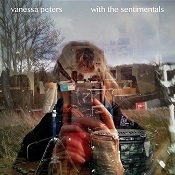 Vanessa Peters released an album in 2006 with her band Ice Cream on Mondays titled “Little Films” and if you wanted a pithy little phrase to describe her songs, that wouldn’t be too far wide of the mark but it’s not quite that simple. Vanessa’s songs describe a world that’s somewhere between Raymond Carver and David Lynch; the songs are vignettes of American life packed with highly visual images and a hint of darkness at the centre. Of the ten songs on the album, six are originals, one is a cover and three are reworkings of earlier album or EP tracks. Three reworkings may seem a bit excessive, but working with The Sentimentals (her European touring band) has created a different perspective on the songs which more than justifies their inclusion on the album.
Vanessa Peters released an album in 2006 with her band Ice Cream on Mondays titled “Little Films” and if you wanted a pithy little phrase to describe her songs, that wouldn’t be too far wide of the mark but it’s not quite that simple. Vanessa’s songs describe a world that’s somewhere between Raymond Carver and David Lynch; the songs are vignettes of American life packed with highly visual images and a hint of darkness at the centre. Of the ten songs on the album, six are originals, one is a cover and three are reworkings of earlier album or EP tracks. Three reworkings may seem a bit excessive, but working with The Sentimentals (her European touring band) has created a different perspective on the songs which more than justifies their inclusion on the album.
The Sentimentals are based in Copenhagen and they are M.C. Hansen (guitars), Nikolaj Wolf (upright bass) and Jacob Chano (drums and percussion). They’ve worked with Vanessa on tour in Europe and the States and last year everyone decided that it was time to immortalise the magic, recording the album live in a couple of Danish studios without any overdubs. The band creates a mellow backdrop throughout the album which allows Vanessa to be close-miked, creating a very intimate setting for a voice which is part early Joni Mitchell, part Suzanne Vega and part Lana del Rey.
The opening song, “Pacific Street” is a cover of a Hem song which the band speeds up and builds around a laser-clean guitar figure. It might not sock you on the jaw, but it leads you gently into the album, hinting at the little treasures within. Of the reworkings, two (“Big Time Underground” and “Fireworks” are from “Little Films”) and tell the stories of variously dysfunctional individuals in relationships; the arrangements have more space and feel more intimate than the originals, allowing the narrative to shine through. “Afford to Pretend” (originally from the “Blackout” EP) goes in the opposite direction, replacing a solo acoustic guitar backing with the full band and a military drumbeat.
“Fickle Friends” and “Light” are both moody pieces, the former having an almost trip-hop feel, while the latter is heavy on reverb and the visual imagery which runs through the album. It’s fair to say that either song would fit perfectly on “Born to Die”. The remaining four songs are classic Vanessa Peters short stories, telling tales of doomed relationships (“Mostly Fictions”), the partner who’s impossible to get close to (the country-tinged “Call You All the Time”), the impossibility of completely closing the door on a chapter of your life (“The Choice”) and the album’s closing track, “Getting By” which is about – well, I think you can work that one out.
The playing on the album is tasteful without ever breaking into showy territory, apart from the lovely guitar solo at the close of “Mostly Fictions” but the songs don’t really need too much embellishment, just a framework to hang them on. If you like your songs, to use a phrase I nicked from the great Scottish singer-songwriter Dean Owens, “somewhere between melancholy and miserable”, then you’re in the right place.
“Vanessa Peters with The Sentimentals” is released on Monday May 11th.
 The objective Zola Jesus set herself for her fourth album was to face her own fears about how her love for pop music would eventually have to inform her work and what that might sound like. It is significant maybe that the oldest song here and the one that finally forced Jesus into the glare of potential mainstream and started the ball rolling, “Dangerous Days”, is also the purest pop song on “Taiga”. It has a brightness that contradicts its title, a brilliant pre chorus, an actual chorus which is only slightly less captivating and a sonic energy that’s slick and addictive and brings to mind the slightly more intricate and risky songs from Madonna’s mighty “Ray of Light” album.
The objective Zola Jesus set herself for her fourth album was to face her own fears about how her love for pop music would eventually have to inform her work and what that might sound like. It is significant maybe that the oldest song here and the one that finally forced Jesus into the glare of potential mainstream and started the ball rolling, “Dangerous Days”, is also the purest pop song on “Taiga”. It has a brightness that contradicts its title, a brilliant pre chorus, an actual chorus which is only slightly less captivating and a sonic energy that’s slick and addictive and brings to mind the slightly more intricate and risky songs from Madonna’s mighty “Ray of Light” album.
The remainder of Taiga is not really a pop record although it frequently aspires to be one. Soundscapes are stripped almost entirely of any of the glitch that featured on 2011’s “Conatus” or the muddy density on her brilliant breakthrough album “Stridulum II” and replaced by something that is undeniably big and rich but simpler and more concentrated than before. A lot of the songs have beautiful, powerful intermissions; it’s just that too frequently the melodies are lacking the strength to push these tracks to required level, the one which you presume she had in her sights. Dean Hurley co-produces with Jesus and is an odd choice given his primary job as David Lynch’s new sound man, responsible for producing both of Lynch’s inconsistent and naive solo albums, and hardly a name synonymous with making music that can be sung along to. There are references here to the Ryan Tedder meets Sia school of Beyoncé power pop on the crashing but dull “Lawless” and the Rihanna-phrased “Long Way Down” but neither songs would pass the pop queen’s test of a tune that hijacks relentlessly.
The more successful tracks, and “Taiga’” is the definition of a front-loaded album, happen in the first half. “Dust” has a woozy, avant r’n’b doo-wop swing which is hypnotising and commercially-minded and “Go (Blank Sea)” like Petula Clark, and hundreds after her, successfully sees Jesus pining for the eternal pop never-never land of “Downtown”. “Hunger” has a thrusting and bewildering attack of beats, brass and synths – at one point it’s hard to distinguish between the two- and a glacial, persistent string part and is exhilarating and sharply euphoric. “Ego” is a suspended hymn of considerable power where all of “Taiga”’s elements fall into place; a lucid and possessed vocal interrupted by sheets of brass that morph effortlessly into aching strings. The ongoing presence of strings and brass in particular bear out the theory that “Taiga” is more of a continuation of the stripped down “Versions” of last year then something you might hear in a bar. From here on in and midway through “Taiga”’s playing time the focus is lost, however, and gives way to repetition and mediocre tunes. “Hollow”, for example, attempts to salvage some drama and presence but is an oddly similar reimagining of the far superior “Hunger”.
Since the release of “Taiga”, Jesus has been remixed by the likes of The Juan Maclean and Diplo, a still relatively underground sophisticated pop-dance act, and the man rumoured to be producing the next Madonna album. Both artists have done commendable jobs in highlighting the hooks in what were admittedly already two of the album’s stronger songs (“Dangerous Days” and “Go”). Where their real strength lies, though, is in taking Jesus’ music to a demographic previously unaware of her and potentially initiating an interest to investigate further. This is where Jesus and “Taiga” stumble as the initial promise of something different and more accessible is never really delivered so new fans are unlikely to convert and current ones will be dissatisfied at the loss of the incredible depth and half-shaded mystery that permeated her earlier work. A good album still with some great songs but “Taiga” doesn’t quite provide the soundtrack that Zola Jesus commands and deserves, whether she continues to chase her big pop arrival remains to be seen but you feel that this isn’t it.
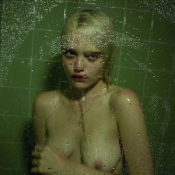 Although her first single appeared in 2010 Sky Ferreira has never released an album before. There appears to have been a lot of music recorded over a three year period, talk of albums near to completion and exciting collaborations, but very little has ever seen the light of day. It would appear that this is mainly due to Ferreira herself not being happy to release material that record companies and interested parties want her to release and therefore becoming an artist that certain sections of the music industry would rather not have to deal with. Either she is a highly volatile personality whose ego stands in the way of her producing consistently good material (hi Azealia!) or she is an artist in the more literal sense of the word who wants to only share material that she stands by. It’s satisfying then to hear, based on this new evidence, it is almost certainly the latter.
Although her first single appeared in 2010 Sky Ferreira has never released an album before. There appears to have been a lot of music recorded over a three year period, talk of albums near to completion and exciting collaborations, but very little has ever seen the light of day. It would appear that this is mainly due to Ferreira herself not being happy to release material that record companies and interested parties want her to release and therefore becoming an artist that certain sections of the music industry would rather not have to deal with. Either she is a highly volatile personality whose ego stands in the way of her producing consistently good material (hi Azealia!) or she is an artist in the more literal sense of the word who wants to only share material that she stands by. It’s satisfying then to hear, based on this new evidence, it is almost certainly the latter.
“Night Time, My Time” is a surprisingly taut guitar, drums and synths (in that order) album, with Ferreira herself sounding bright and pouting through the majority of it. The sexuality that informs the NSFW album sleeve portrait translates into the multi-harmonies that make up the wall of sound, mid-sixties girl group album opener “Boys”. The predominant electro-pop sound that runs through the majority of her previous releases does not dominate here and this collection sounds unlike anything else released by a female singer in 2013 who is within the genre of ‘pop artist’. Whilst not a retro album, the spirit of early Blondie, Joan Jett, Siouxsie Sioux and even Kim Wilde are alive and well and it’s these kind of stand-alone punk icons that Ferreira obviously feels a kinship with.
Ariel Rechtshaid (Charlie XCX, Vampire Weekend and Glasser), who produces the entire album, excels at creating wonderfully full soundscapes which bulge with intricate details and neat sonic flourishes (listen to Haim’s thrilling “My Song 5” for an example). On songs like the snarling “Nobody Asked Me (If I Was Okay)” and “Kids In America”-mugging “Ain’t Your Right”, Ferreira and Rechtshaid give “Night Time, My Time” a genuine indie rock-pop authenticity and power as a cohesive body of work and not just an exercise in producer placement. Regardless of whether acoustic specialist Jon Brion or pop god Greg Kurstin had taken the production reins here, as it was previously assumed they might (both have worked successfully with Ferreira before), none of this would work if the songs weren’t good enough, and Ferreira has always had an excess of brilliant tunes.
Fans who may possibly mourn the overall departure of more traditional pop songs like the towering, Kylie-like “One” from 2010 can still find solace here with three nuggets of airy and gleaming brilliance: “24 Hours”, “Love in Stereo” and, in particular, the defiant “I Blame Myself”. The latter finds Ferreira accusing her detractors ‘How could you know what it feels like to fight the hounds of hell? How could you know what it feels like to be outside yourself? You think you know me so well? I just want you to realise I blame myself for my reputation’. And that still doesn’t take into account “Kristine”, a real weirdo of a track, short with deliberately hard to decipher lyrics that seem to reference shopping with said Kristine and the young millionaires with an ever
ascending melody key-line and the admission ‘even though I’m not bright, I can live in the bright town’. Its craziness is unexpected and brilliantly realised.
Ferreira has said that the album’s title comes from a line spoken by the tragic character Laura Palmer in David Lynch’s feature length film “Fire Walk with Me”, more commonly known as Twin Peaks, or at least a less successful prequel to the hugely popular TV show of that name. There is an incredibly affecting scene in the film where Laura Palmer speaks about falling in space and how eventually you would burst into flames and the angels wouldn’t save you as they are all gone. A haunting insight into the lead character’s eventual death, Ferreira incorporates this dialogue into the title track’s lyrics; the bad girl punished by death. It’s a sombre close to an otherwise uplifting and exhilarating album and musically it’s lifted straight from Tricky’s 1995 trip hop classic, ‘Maxinquaye’. It’s sticky and drunken with Ferreira coolly accepting her potential fate. This track alone confirms the risks she clearly wanted to take with her first album, it’s impossible to imagine any one of pop’s golden girls making anything as desolate sounding as this; it’s how you may expect Lady Gaga to sound if you had only seen her.
“Heavy Metal Heart” may go precisely nowhere and “Omanko” takes a novelty turn in the wrong direction but this still doesn’t prevent Sky Ferreira’s album from being a massive achievement. Her current reputation as the hipster bloggers’ poster girl is troubling as it is questionable. How much of that is due to the music as opposed to the image of a seemingly nihilistic, with occasional low self-esteem issues, ex-model? This is a pop artist, though, and image is arguably as important as sound. What Ferreira has done with “Night Time, My Time” is that she has made a record where it isn’t necessary to rely on visual props to fully relate to and enjoy the music. In that way it seems quite old fashioned and there is little doubt whilst listening to it that she loves these songs and making them come to life. If you were impressed but unmoved by some of the bigger, shinier releases from the last four months of 2013, then this album may relieve some of your pessimism. She may have taken an age to do it and it’s very early to say, but Sky Ferriera may have made one of the best albums of 2014.
 Anna Calvi’s debut album was heralded as a new classic within moments of its release. It was florid and troubled, being close cousins to artists such as Nick Cave and with a cinematic cloak draped over it as if imagined by David Lynch at his most romantic and doomed. It was also produced by Rob Ellis, long-time collaborator with PJ Harvey. Ah yes, PJ Harvey. It would be almost irresponsible as a reporter of music not to acknowledge that both artists can share a writing and melodic style, vocal comparisons can on occasion be made between Calvi and Harvey and both fall into the same genre of woman with a guitar (sometimes), not passive, singer-songwriter blues/rock, visually hyper-stylised , entertainer. There are many people who have made records over the past decade or so where the influence of PJH is undeniable but unlike the majority, Calvi’s talent is the actual link between the two and not her desire to mimic Harvey. This is reinforced here on her second album, the radiant and self-possessed “One Breath”. After the stalking guitars and ghostly ‘ooh-oooh’s’ of “Suddenly” and “Eliza” with its thumping strum, it’s only on the third track, “Piece by Piece”, that Calvi deviates from the sonic template previously established on her debut. After the broken and collapsing strings of the intro a rhythmic, tumbling drum snaps into shape and a plucked mandolin and various electronic zips and pops swoon around Calvi who has conjured up the spirit of Siouxsie Sioux here, whilst a scuzzy bass muscles up against an airy string part. The total effect is mesmerising. It’s these string sections, very much a musical theme here, that give “One Breath” its power, the push and pull between light and dark. Producer John Congleton, who has, amongst others, worked with Joanna Newsom and St Vincent, helped create a sumptuous but frequently uneasy and volatile soundscape throughout. Calvi has spoken out about how during the making of this album she suffered from very low moods and that someone very close to her died. It is likely that this in some part went toward dictating the themes and mood of this album and the title track is the boulder around which each track is laid. ‘I got one, I got one breath to give ….it’s going to change everything’ Calvi repeats as though a mantra whilst everything around her is building unforgivingly and then, precisely at the 3 minute mark, a gorgeous orchestral coda breaks through the tension and instantly lifts Calvi, and the listener, wordlessly away to a safer and more beautiful place. It’s both moving and dramatic, a combination of theatre and absolute sincerity. Elsewhere, the near 6 minute “Carry Me Over” with its demonically euphoric final minute of Calvi’s rapturous wails pillowed by the continuing orchestration is a genuine tour de force and “Sing to Me”, which regularly threatens to break into “River Deep, Mountain High”, is an authentic and commanding torch song. After this heightened sensation of a noir love story gone awry , the false start of the rock roll throb of the most straightforward song here, “Love of My Life”, is an unexpected and thrilling thump in the eye. The shortest and perhaps most breath-taking song here is the album closer “The Bridge”, an acapella, choral hymn that chills and will make many misty-eyed with its simple, crystalline beauty. In some ways Anna Calvi has toned down the theatrics and threat that dominated her debut and replaced them with a more nuanced and considered account of a persona under attack but ultimately, and appropriately breathtakingly, breaking free from previous restraints, self-imposed or otherwise. Without doubt the drama and darkness are still present, but on “One Breath” Calvi has created a collection of songs which reflect and show her as an exceptional artist in her own right as opposed to a great artist within the genre. If you want to be genuinely thrilled and startled by music that twists and turns in unpredictable shades and volumes then Anna Calvi has made an album to treasure and completely immerse yourself into, it’s quite an accomplishment.
Anna Calvi’s debut album was heralded as a new classic within moments of its release. It was florid and troubled, being close cousins to artists such as Nick Cave and with a cinematic cloak draped over it as if imagined by David Lynch at his most romantic and doomed. It was also produced by Rob Ellis, long-time collaborator with PJ Harvey. Ah yes, PJ Harvey. It would be almost irresponsible as a reporter of music not to acknowledge that both artists can share a writing and melodic style, vocal comparisons can on occasion be made between Calvi and Harvey and both fall into the same genre of woman with a guitar (sometimes), not passive, singer-songwriter blues/rock, visually hyper-stylised , entertainer. There are many people who have made records over the past decade or so where the influence of PJH is undeniable but unlike the majority, Calvi’s talent is the actual link between the two and not her desire to mimic Harvey. This is reinforced here on her second album, the radiant and self-possessed “One Breath”. After the stalking guitars and ghostly ‘ooh-oooh’s’ of “Suddenly” and “Eliza” with its thumping strum, it’s only on the third track, “Piece by Piece”, that Calvi deviates from the sonic template previously established on her debut. After the broken and collapsing strings of the intro a rhythmic, tumbling drum snaps into shape and a plucked mandolin and various electronic zips and pops swoon around Calvi who has conjured up the spirit of Siouxsie Sioux here, whilst a scuzzy bass muscles up against an airy string part. The total effect is mesmerising. It’s these string sections, very much a musical theme here, that give “One Breath” its power, the push and pull between light and dark. Producer John Congleton, who has, amongst others, worked with Joanna Newsom and St Vincent, helped create a sumptuous but frequently uneasy and volatile soundscape throughout. Calvi has spoken out about how during the making of this album she suffered from very low moods and that someone very close to her died. It is likely that this in some part went toward dictating the themes and mood of this album and the title track is the boulder around which each track is laid. ‘I got one, I got one breath to give ….it’s going to change everything’ Calvi repeats as though a mantra whilst everything around her is building unforgivingly and then, precisely at the 3 minute mark, a gorgeous orchestral coda breaks through the tension and instantly lifts Calvi, and the listener, wordlessly away to a safer and more beautiful place. It’s both moving and dramatic, a combination of theatre and absolute sincerity. Elsewhere, the near 6 minute “Carry Me Over” with its demonically euphoric final minute of Calvi’s rapturous wails pillowed by the continuing orchestration is a genuine tour de force and “Sing to Me”, which regularly threatens to break into “River Deep, Mountain High”, is an authentic and commanding torch song. After this heightened sensation of a noir love story gone awry , the false start of the rock roll throb of the most straightforward song here, “Love of My Life”, is an unexpected and thrilling thump in the eye. The shortest and perhaps most breath-taking song here is the album closer “The Bridge”, an acapella, choral hymn that chills and will make many misty-eyed with its simple, crystalline beauty. In some ways Anna Calvi has toned down the theatrics and threat that dominated her debut and replaced them with a more nuanced and considered account of a persona under attack but ultimately, and appropriately breathtakingly, breaking free from previous restraints, self-imposed or otherwise. Without doubt the drama and darkness are still present, but on “One Breath” Calvi has created a collection of songs which reflect and show her as an exceptional artist in her own right as opposed to a great artist within the genre. If you want to be genuinely thrilled and startled by music that twists and turns in unpredictable shades and volumes then Anna Calvi has made an album to treasure and completely immerse yourself into, it’s quite an accomplishment.
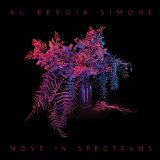 American synth trio Au Revoir Simone have stepped out from the shadows a little on “Moves in Spectrums”, their fourth album in a decade. They were never a dark band, don’t let the adoration of superfans like David Lynch confuse you, but they were introverted and their sound straightforward in its small way where basic electronics meshed with sympathetic but independent, occasionally folky female leads. The trick was that little thorns would stick and cut occasionally if you weren’t careful and sadness would completely dominate and then just evaporate. It was this that made them special and why so many would always come back for more of something that they couldn’t quite put their finger on.
American synth trio Au Revoir Simone have stepped out from the shadows a little on “Moves in Spectrums”, their fourth album in a decade. They were never a dark band, don’t let the adoration of superfans like David Lynch confuse you, but they were introverted and their sound straightforward in its small way where basic electronics meshed with sympathetic but independent, occasionally folky female leads. The trick was that little thorns would stick and cut occasionally if you weren’t careful and sadness would completely dominate and then just evaporate. It was this that made them special and why so many would always come back for more of something that they couldn’t quite put their finger on.
Over the course of three albums Au Revoir Simone had gone from their relatively lo-fi, cheapo keyboard aesthetic to something far more expansive and expensive without ever compromising what is essentially their sound. Their last “The Bird of Music” was in many ways their most experimental but almost their most whimsical; it had more sonic clout than the previous two releases but it was also hard to escape the feeling that three albums from the trio may be enough. “Moves in Spectrums” goes some way in proving this hunch to be somewhat short-sighted and premature. Opening track “More Than” with its menace and prowl and dominant drum pattern and droning synth has only the bright harmonised chorus that reveals the band’s identity and it sounds great. “The Lead is Galloping” with its interestingly reversed, request hook of ‘Nobody put your hands up’ is a lolloping, sarcastic low self-esteem anthem and both “Just Like a Tree” and “Somebody Who” (featuring some all too brief but totally gorgeous cowbells) plunder satisfyingly rich-sounding, 80’s electro chart pop. Swirling and ‘ha-ha-ha-ha’ voiced “Boiling Point” is a commendable homage to Laurie Anderson and “Crazy” has the most incredible use of synths as if they were guitars that you will have heard for a while.
There are some odd decisions made here though and this is something all of Au Revoir Simone’s previous albums suffer from; plonking a track in, three in this case, whose inclusion seems to make little sense to anyone other than, I presume, the band themselves. Personal songs or experimentation are one thing but “We Both Know” is a very boring, almost five minute, semi-instrumental that goes nowhere, vocals popping up in the last minute and a half to be forgotten forever. “Love You Don’t Know Me” is that one line repeated over a minor MOR electronic keyboard melody for three minutes and album closer “Let the Night Win” although superficially vibrant, is not exactly captivating. It’s almost a complete certainty that the band have better material but they’ve decided that these tracks are the ones that should be heard; it’s frustrating and feels oddly self-indulgent.
“Moves in Spectrums” is an album where the good is some of Au Revoir Simone’s best and the average is still present. Every album has been more interesting than the last and this is their most cohesive in many ways and certainly the most assertive, a much needed attribute that the band required to move forward and to avoid the sometimes all too appropriate ‘nice’ tag. They are currently one of only a few female groups making this particular type of warm, slightly eccentric electronic music and therefore the competition may not be great but they do still lead in their genre. The feeling now though is whether Au Revior Simone can find that one brilliant album that they surely have in them as sadly, despite the very strong opening, this isn’t it.
 A remix album that surpasses the original recording is a rarity indeed. For a relatively small scale, indie electronic band like Ultraista it feels perfunctory to issue one at some point and along with contemporaries such as Au Revoir Simone and Lali Puna, as well as big hitters like Bjork and Lady Gaga, the thing they all have in common is wildly varying levels of success and are all too often the ultimate exercise in self- indulgence.
A remix album that surpasses the original recording is a rarity indeed. For a relatively small scale, indie electronic band like Ultraista it feels perfunctory to issue one at some point and along with contemporaries such as Au Revoir Simone and Lali Puna, as well as big hitters like Bjork and Lady Gaga, the thing they all have in common is wildly varying levels of success and are all too often the ultimate exercise in self- indulgence.
Ultraista’s self-titled album, from which the remixers all derive their source material, was released last October and considering the enticing concept of Thom Yorke’s right hand man, Nigel Godrich, making female vocal lead electronica, the actual reception was not entirely ecstatic. It was glitchy and introverted, not necessarily intended on occasion I’m sure and partly due to Laura Bettinson’s vocals often being quietly pushed back into the mix, which undermined the impact of some of the stronger melodies. The main problem of what is still an interesting and thoughtful album is that, apart for the trip (predominantly) hop of slowed down “Party Line”, it was an album with little variation of beat, rhythm or structure. This album then is the ideal companion piece, bringing out the necessary colour and bite.
All ten of the original songs get a new treatment and unlike many other remix excursions there aren’t six versions of one particular track leading to repetitive ear strain injury early on (there are additional versions on the digital version though), with the majority thankfully not exceeding the five minute mark. “Smalltalk (Four Tet)” may stutter and rattle enthusiastically but the melody which was previously implied but not exploited now shines through and “Party Line(Canon Blue)” brings Bettinson’s vocal out of hiding and makes it a tight, bright thrill; the same applies to the now delightfully menacing “Easier (Zammuto)”.
“Static Light”, always one of their strongest tracks, was originally swamped by synths and drones and now Matthew Herbert turns it into a buzzing, tumbling pop rush reminiscent of his more major production work with Bjork and Roisin Murphy. Oddly now becoming better known as a prolific remixer (how exactly did this happen?) than a film director, David Lynch brilliantly turns the averagely competent “Strange Formula” into a dusty and scuzzy blues drawl. “Bad Insect” and “Our Song” don’t fare as well, being overwrought drum and bass and blissed out coffee table respectively, but two out of ten ain’t bad.
In many ways a template for the successful remix project, Ultraista have proved that there is still life in what is a really a marketing tool if quality control is paramount and the DNA of the original material remains; this is certainly the case here. This collection is cohesive and thoughtfully complied and if it in fact had been released in this format, it might have succeeded in making a stronger impression than the original recordings themselves. As it stands, the remixers have done an exceptional job in exposing Ultraista as the dynamic, quietly foreboding band that they have the potential to be.
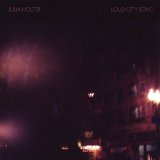 Julia Holter is still an experimental artist but this, her third album, puts her voice in a clear spotlight with the fog of last year’s outstanding “Ekstasis” having almost completely cleared with a brightness and more straightforward mood taking its place. With Holter straightforward equals a concept of sorts that references “Gigi” the book, film and musical which starred Audrey Hepburn in the title role and also contemporary celebrity culture. It’s interesting that” Loud City Song”, her most accessible album to date, shares themes that have already been appropriated by pop queens Madonna and Lady Gaga but rest assured neither generation of pop icon is likely to make an album that sounds anything like “Loud City Song”.
Julia Holter is still an experimental artist but this, her third album, puts her voice in a clear spotlight with the fog of last year’s outstanding “Ekstasis” having almost completely cleared with a brightness and more straightforward mood taking its place. With Holter straightforward equals a concept of sorts that references “Gigi” the book, film and musical which starred Audrey Hepburn in the title role and also contemporary celebrity culture. It’s interesting that” Loud City Song”, her most accessible album to date, shares themes that have already been appropriated by pop queens Madonna and Lady Gaga but rest assured neither generation of pop icon is likely to make an album that sounds anything like “Loud City Song”.
An angelic acapella cry of ‘Heaven’ is the first thing heard on “World” which slowly introduces piano and then strings with lyrics about hiding behind the brim of your hat in a city that’s too interested in you. She wants to live in a city, in her apartment block on the fifth floor, but is exhausted and bored by the intense scrutiny of strangers. Like many of the songs here, this starts quiet and pure but becomes increasingly crowded and tense as things progress. Like the climate in her native LA, occasional volatile moods can disrupt the calm but the release is restorative.
Maxim’s was the restaurant favoured by judgemental Parisian society featured in “Gigi” and there are two variations of a song named after it here which form the foundations that the remaining material sits upon. “Maxim’s I” is played in slow motion, dreamy and not fully conscious; it toughens up for a piano and violin-pricked middle eight and then dissolves again. Later on in the album “Maxim’s II” is experiencing the restaurant when it’s reservations only, noisy and overly stimulating with snatches of isolated senseless conversations ‘Tonight the birds are watching me, do they have more important things to do?’. It has a big beat and is sung-spoken by Holter in a way that is reminiscent, as is the whole track, of art-pop Grande Dame Laurie Anderson during her most commercially successful, early eighties period.
“Horns Surrounding Me” starts with a recording of a man running and breathing heavily, being chased by what can be presumed to be the paparazzi. It doesn’t disappoint with its horns pay off and is sonically grand and classical in a traditional sense. “Hello Stranger” is a cover of the Barbara Lewis r’n’b classic from the early sixties and Holter treats it as an ironic David Lynch Julee Cruise standard. Suspended keyboards and haunted vocals leading to eventual confusion and distress which is continued through to the plaintive, Angelo Badalamenti-like piano ballad “He’s Running Through My Eyes”. The throbbing double bass and deadpan repetition of the line ‘there’s a flavour to the sound of walking no one ever noticed before’ of “In the Green Wild” is all quirk and twitch in the best possible sense.
“Loud City Song” is certainly Julia Holter’s most musical album to date and is structured in a way that is, more than anything, typical of a musical play, much like its reference points. It is simultaneously very old-fashioned in its use of instruments and arrangements and modern in the way it stops short of any clear categorisation. The songwriting itself is maybe less evolved than “Ekstasis”; nothing quite matches that album’s “In the Same Room” for simplicity and immediacy, but its strengths lie elsewhere. As an artist Holter and her LA-based work keeps moving forward at a tireless, restless place and on “Loud City Song” she has made something that is intimate, warm and far more approachable than ever before.
 Nadine Shah has made a good, albeit slightly anonymous, debut album which has one major downfall; her purposely dour and low delivery combined with Ben Hillier’s swampy, stylistic production with tales of troubled men and put upon women positively encourages immediate comparison to the Gothic Elite. PJ Harvey, Nick Cave, Marianne Faithfull are names you will undoubtedly see in reference to Shah’s work and as the first track “Aching Bones” moans and trudges into view there is no getting away from the similarities between this and Harvey during her exaggerated and traumatised blues vamp that she inhabited during her vivid “To Bring You My Love” period. Drawing comparisons to such iconoclasts is a risky business but “Love Your Dum and Mad” goes some way towards proving that there is enough room for everyone.
Nadine Shah has made a good, albeit slightly anonymous, debut album which has one major downfall; her purposely dour and low delivery combined with Ben Hillier’s swampy, stylistic production with tales of troubled men and put upon women positively encourages immediate comparison to the Gothic Elite. PJ Harvey, Nick Cave, Marianne Faithfull are names you will undoubtedly see in reference to Shah’s work and as the first track “Aching Bones” moans and trudges into view there is no getting away from the similarities between this and Harvey during her exaggerated and traumatised blues vamp that she inhabited during her vivid “To Bring You My Love” period. Drawing comparisons to such iconoclasts is a risky business but “Love Your Dum and Mad” goes some way towards proving that there is enough room for everyone.
The first half of the album is packed out sonically, full and dusty with looped samples and reverb. Songs like the excellent “To Be a Young Man” and in particular “Runaway” (‘Did you ever stop to notice I too worked hard to build this home, and now I am of no use to you now that the children have grown’) are character-based songs sung in the first person with Shah deliberately exaggerating her northern accent, she sings with it throughout, to colour the mood wonderfully. Later on the album does she confuse slightly with more traditional ballads such as “All I Want” which could be an Adele song, it’s soulful and surprisingly radio friendly with its electronic piano and ‘just sit in cafes and not say a word’ refrain. Another slower song and early single “Dreary Town” (an Adele song title if ever there was one!) is nice but considering its autobiographical relevance here (it’s about a former lover of Shah’s who because of bipolar disorder subsequently killed himself) it doesn’t pack the punch that it could and should.
“The Devil”, a song title so ubiquitous within the genre that not only has Anna Calvi, who was 2011’s PJ Harvey, but Harvey herself had ‘Devil’ songs and Shah’s attempt will almost certainly not be remembered as an essential addition to an already overcrowded collection and to include it here seems at best ill-advised. The deceptively hypnotic “Floating” does a lovely thing very early on and positions a very David Lynch type twanging, distorted instrumental break right where there shouldn’t be one; its beauty is slow burning and unsettling. “Filthy Game” is this album’s attempt at a “Surabaya Johnny” and Shah is a convincing, worldly-sounding narrator.
Nadine Shah has been making this record for four years and this goes some way towards explaining the varying levels of maturity that are evident from song to song; it’s a very grown-up record or at least wants to be but is occasionally betrayed by volatile songwriting with Ben Hillier’s production sometimes resembling too many other similar artists. Shah has an amazing voice and does not descend into histrionics where others would; given the potentially melodramatic subject matter here the temptation must have been great and her controlled performance throughout the entirety of “Love Your Dum and Mad” is indeed its greatest asset.
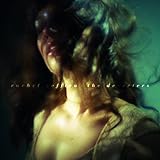 This time last year, when I was considering my top 5 albums of 2011, I had no hesitation in including the sublime eponymous debut album from the Horrors front man Faris Badwan and classically trained, both musically and vocally, Rachel Zeffira duo; Cat’s Eyes. On the tracks where she took lead vocal, Rachel created images of sad, 1950’s high school girls lost in the alienating fog of a very David Lynch, night-time world; it was heartbreaking. There are in fact many similarities to Zeffira’s style and that of Julee Cruise; Lynch and composer Angelo Badalementi’s definitive nightclub chanteuse, and her (surely?) classic album ‘Floating Into the Night’ released at the tail end of the nineties and during Lynch’s successful ‘Twin Peaks’ period; but more on that later.
This time last year, when I was considering my top 5 albums of 2011, I had no hesitation in including the sublime eponymous debut album from the Horrors front man Faris Badwan and classically trained, both musically and vocally, Rachel Zeffira duo; Cat’s Eyes. On the tracks where she took lead vocal, Rachel created images of sad, 1950’s high school girls lost in the alienating fog of a very David Lynch, night-time world; it was heartbreaking. There are in fact many similarities to Zeffira’s style and that of Julee Cruise; Lynch and composer Angelo Badalementi’s definitive nightclub chanteuse, and her (surely?) classic album ‘Floating Into the Night’ released at the tail end of the nineties and during Lynch’s successful ‘Twin Peaks’ period; but more on that later.
Whilst there were some industrial sounds and more explicit 1960’s surf pop influences played out on the Cat’s Eyes album, Zeffira has really homed in on the baroque, classical elements that always sonically threatened to take over their debut and, understandably, seem to be where she excels and feels most comfortable. And where that album cast her as a schoolgirl steeped in adolescent angst, albeit in a very adult sounding setting (“The Best Person I Know”, “I’m Not Stupid”), this is told from a far more adult perspective where decisions have been considered and consequences accepted and reflected upon. The sadness and beauty is striking and “The Deserters” captures the sense of loss, or change, at least, in almost every song. 7 out of the 10 songs here (which include a lush version of the My Bloody Valentine song “To Here Knows Where”) feature either the words ‘go’, ‘gone’ or goodbye’; the title track doesn’t but then it doesn’t need to.
Rachel Zeffira’s angelic, soprano vocals (Canadian born, but now living in London, she shockingly references Brixton in one song) are sometimes multi-tracked and often have a slight reverb which in no way detracts from the emotional strength delivered and along with the pop song sensibility and the subtleness of the orchestra used in many of the tracks this is not, maybe surprisingly, a depressing album. “Break the Spell” swirls and beats strongly enough for you to dance to it (listen to those plush harps!) whilst “Goodbye Divine” with its blaring cathedral organ is a winter hymn. “Letters from Tokyo (Sayonara)” begins with a carousel effect, a piano with the lyrics confessing ‘You won’t hear from me anymore, I told many lies and hid many more; nothing can make me change my mind’ and it’s on this track, an obvious highlight, that the resemblance to Julee Cruise gave me goose bumps. It’s striking just how much the song’s structure and content and the actual performance from Zeffira calls to mind Cruise at her most devastating and this is a positive thing. No-one has filled the gap left by Cruise (Lana Del Rey is the most obvious candidate but hers is a more self-conscious, much more explicit variation) but where she often sounded like she was at the point of disintegrating, Zeffira has a strength and independence that Lynch would never have allowed his one-time musical muse.
Like “Cat’s Eyes” before it, “The Deserters” is a cruelly short album (not quite 37 minutes!) but I guarantee you that some of the year’s most beguiling and surprisingly warming music is contained within it. The really magical thing is that Zeffira also recognises and understands how to displace the listener, transport them to somewhere not at all familiar and then close the door behind them for an all too brief trip to an alternate hinterland. Some incredible music on offer here then but will it make this year’s top 5?


